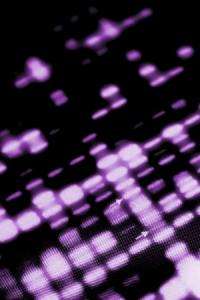A genetic variation common in East Asian populations has been linked to cancer drug resistance

Tyrosine kinase inhibitors (TKIs) kill cancerous cells by inducing programmed cell death. They are of enormous therapeutic benefit to patients with chronic myeloid leukemia (CML) and certain types of lung cancer, but their effectiveness may vary from individual to individual. Previous studies have estimated that one in five patients finds TKIs to be ineffective. An international team of researchers including Yijun Ruan and Axel Hillmer at the A*STAR Genome Institute of Singapore, Sin Tiong Ong and King Pan Ng at the Duke-National University of Singapore Graduate Medical School, Charles Chuah at the Department of Haematology, Singapore General Hospital and Darren Wan-Teck Lim at the National Cancer Centre has now identified a common genetic variation linked with resistance to TKIs.
Ng, Hillmer and their colleagues sequenced and compared the genomes of five CML patients, three of whom were resistant to treatment with TKIs, focusing on several candidate genes that are known to be involved in the cell death signaling pathway. The researchers found that what the three TKI-resistant patients all had in common was a 2,903 base pair deletion in the non-coding region of the BIM gene, which encodes a member of the BCL2 family of cell death genes.
They then screened the genomes of more than 2,500 healthy individuals, and found that this deletion is a common variation that occurs in approximately one eighth of East Asian individuals but is not found in Africans or Europeans. Further experiments revealed that the deletion alters processing of the messenger RNA that is transcribed from the BIM gene. As a result of this, the coding sequence of the cell death activation domain is preferentially removed, so that the BIM proteins synthesized from the transcript are faulty.
Finally, the researchers showed that the deletion in the BIM gene is a useful biomarker that predicts which patients are at risk for developing TKI resistance. They examined the responses of 203 East Asian cancer patients to the drug imatinib, and found that CML patients with the deletion were more likely to be resistant to it.
In lung cancer patients, the deletion was associated with the duration of the drug response, and predicted a shorter period of survival without disease progression. Those with the deletion had progression-free periods of about six-and-a-half months, on average, compared to an average of nearly 12 months in those without it.
“Asian CML patients could be screened for the presence of the deletion to determine the ones who have a higher chance of being resistant to TKI treatment,” says Hillmer. “It will be interesting to investigate the frequency of the deletion polymorphism in other populations and to translate the findings in the clinical practice.”
More information: Ng, K. P. et al. A common BIM deletion polymorphism mediates intrinsic resistance and inferior responses to tyrosine kinase inhibitors in cancer. Nature Medicine 18, 521–528 (2012). dx.doi.org/10.1038/nm.2713















